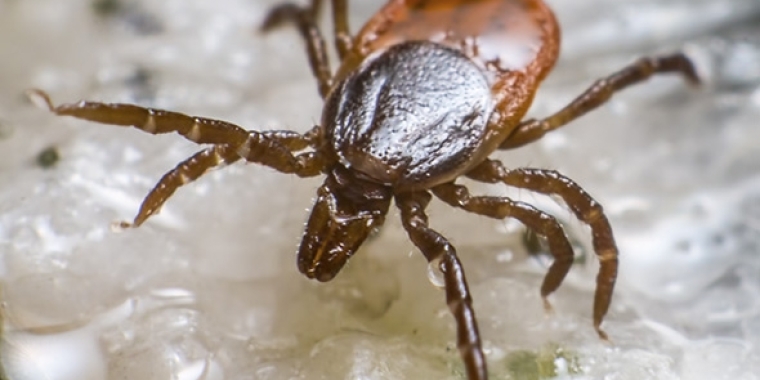
Taking Charge Against Ticks
June 9, 2017

With the warm weather here comes unwanted visitors, like ticks that can cause various diseases, including Lyme disease.
For the last decade, Lyme disease—a bacteria-caused condition that attacks the nervous system, heart, skin and joints—has been creeping northward to our area. Since 2005, the infection rate in St. Lawrence County from Lyme, which is spread through the bite of tiny ticks, has grown 95 times, from virtually zero to more than 100 victims a year. Meanwhile, the statewide rate has increased by about half that amount. According to a 2015 report, Jefferson County saw 60 reported cases of Lyme disease, while Oswego County documented 51 cases of this tick-borne illness.
As a member of the Senate Task Force on Lyme and Tick-Borne Diseases, I am working alongside my colleagues to help stop the spread illnesses caused by these insects. Just recently, we successfully advocated for $400,000 in the new state budget to enhance research, education and prevention efforts. In addition, I also teamed up recently with local school officials in St. Lawrence County—one areas of our state hardest hit by the disease—to share information with students and families about the dangers of the tick-borne illness.
You can be part of the effort to stop the spread of Lyme too, by practicing these important prevention tips and sharing them with your family and friends:
-When outdoors, stay on the center of trails or pathways and try not to brush against vegetation;
-To prevent ticks from making contact with your skin, wear long pants and long-sleeved shirts;
-Wear light colored and tightly woven clothing—this will make it easier to spot ticks;
-Check yourself regularly for ticks, paying special attention to the backs of knees, behind the ears, your scalp, armpits and back;
-If you find a tick on your skin, do not panic. Use a pair of pointed tweezers to grasp the tick by the head or mouth—not by the body—and pull firmly and steadily outward. Be sure to wash your hands immediately to prevent secondary infection; and
-If you have been bitten, monitor the site of the bite for the next month. If a rash appears or you develop flu-like symptoms, be sure to contact your health care provider immediately.
Ticks are small, but they can cause big problems when it comes to your health. As you prepare to enjoy the summer, I urge you to take steps to safeguard yourself and your loved ones.
Share this Article or Press Release
Newsroom
Go to NewsroomStatement from Senator Patty Ritchie
November 23, 2021


Senator Ritchie 2021 Veteran Hall of Fame
November 11, 2021

Statement from Senator Patty Ritchie
November 8, 2021
